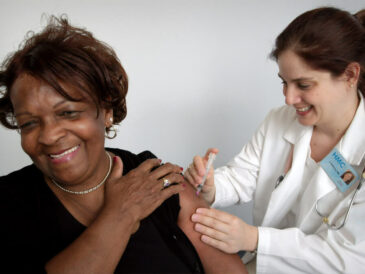The healthcare system in South Africa is divided into two distinct tiers. The state is responsible for administering and providing funding for public health services, the vast majority of which are provided at no cost. The private sector both owns and operates healthcare facilities that are classified as private. To receive private healthcare, patients must either pay for it out of pocket or use their health insurance. The bulk of South Africa’s population, which accounts for 80% of the country’s total, is dependent on the public health service. Patients undergoing treatment for breast cancer are included in this category.
Throughout their journey through treatment, patients diagnosed with breast cancer will inevitably face obstacles. However, the particulars can change quite a bit depending on the therapies, the individual’s socioeconomic factors, and the region in which they live.
Treatment for breast cancer is readily available in the private sector; however, it comes at an expensive price. On the other hand, only a limited number of public health facilities are equipped with the experts and funds necessary to treat breast cancer.
Tertiary hospitals, which are only found in the country’s major urban areas, are the only places where patients can receive care such as chemo. Availability to medical centers can be a roadblock to care, despite the fact that there is little financial outlay required from the patient for the treatment.
Patients have recurrently brought up the issue of transportation between and within the facility as a significant problem. It comes at a very high cost (as a portion of the salary income). In addition, based on where the individual lives, it may be challenging for them to get to the clinic, and doing so may require more than one trip. The most frequent cause of a patient not adhering to their treatment plan is because of transport issues. Although a person’s place of residence should not have any bearing on the outcome of their breast cancer treatment, it is nonetheless a significant factor in doing so.
The South African Public Transportation System

The clients at Tygerberg have a difficult time gaining access to their private vehicles. The vast majority of them travel using public transportation.
Train services, bus services, and taxi minibusses are the three different modes of public transportation that can be utilized in South Africa. The HealthNet transportation service provides an additional alternative for certain patients who need to get to their appointments. This is a specialized service that is only offered to large hospitals in the region of the Western Cape. It is not available on a daily basis, and participants are required to make reservations in advance. Because of this, many of our patient populations are unable to make use of it.
Patients are responsible for making alternative transportation plans because, despite the fact that the service is offered without charge, the HealthNet buses do not always operate on the day that a medical appointment or treatment is scheduled to take place.
The Most Widespread and Expensive Form of Public Transportation Are Minibus Taxis
They are utilized in approximately two-thirds of all houses. Between 2013 and 2020, there was a significant decrease in the use of more economically viable modes of transportation such as buses and trains as a result of the deteriorating infrastructure.
Regrettably, there aren’t any reliable statistics on the amount of money spent on travel by the patient population. On the other hand, it’s been documented in the past that households with low incomes spend one-third of their income on transportation. Because patients often have to make multiple trips to the hospital for appointments during their diagnosis and treatment, this number could be even higher for patients.
A patient who has been given a cancer diagnosis will typically need to schedule four consultations at the hospital for various investigations. In the event that they need systemic treatment, such as chemo, there will be a total of 8 hospital appointments required, as patients are typically given a total of 8 treatment cycles. Consequently, in order to obtain adequate treatment, the typical patient will need to make a total of twelve visits to the medical facility.
According to the observation of one of the nursing professionals:
The majority of those who are ill and in need of our assistance here at Tygerberg Hospital live in the surrounding area. Even though they live nearby, they won’t be able to walk there because it’s too far.
A Viable Solution
Pink Lady Apples provided the initial financing for the Tygerberg Breast Unit Transit Fund, which was established in 2010 as a result of a collaborative effort between Dr. Justus Appfelstaedt and Pink Lady Apples in response to the growing difficulty of patient transportation. A nearby apple producer known as Pink Lady Apples, Crafts for Cancer is an event that takes place every year to raise money for cancer research.
In its early stages, the fund took the form of a cash-based system, which offered the benefit of instant reimbursement. However, as a consequence of this, issues arose with regard to equity, strategic planning, and the handling of the funds. Reimbursement of patients’ travel expenses to hospital visits is now handled through the use of a special bank account known as “move money.” The amount of compensation is determined by the average taxi fare required to get from the person’s postal code to Tygerberg Hospital.
Over 100 patients were given reimbursement for their transportation expenses during the first 9 months of the year 2022. However, approximately twenty percent of the payouts weren’t even collected, and further investigation into the reasons why is required.
This Initiative Has Assisted a Significant Number of Individuals With Their Transportation Costs
If the needed resources were made available, in our opinion, it could be made to work for patients located in other regions as well. Within the unit, the transit fund has been expanded thanks to the establishment of the Breaking Barriers Non-Profit Organization, which provides assistance to other patients in the Breast and Endocrine Unit with their accessibility to social support as well as their travel expenses.





